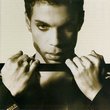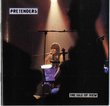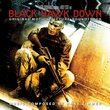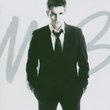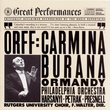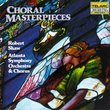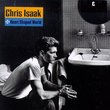| All Artists: Plácido Domingo, Cheryl Studer, Sergei Leiferkus, Denyce Graves, Philippe Duminy, Ramon Vargas, Michael Schade, Ildebrando D'Arcangelo Title: Otello / Verdi, Domingo, Studer, Leiferkus, Vargas, D. Graves, Schade, D'Arcangelo, Chung Members Wishing: 1 Total Copies: 0 Label: Deutsche Grammophon Release Date: 10/11/1994 Genre: Classical Style: Opera & Classical Vocal Number of Discs: 2 SwapaCD Credits: 2 UPC: 028943980524 |
Search - Plácido Domingo, Cheryl Studer, Sergei Leiferkus :: Otello / Verdi, Domingo, Studer, Leiferkus, Vargas, D. Graves, Schade, D'Arcangelo, Chung
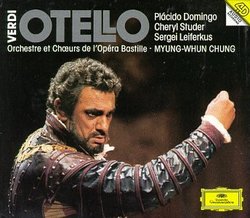 | Plácido Domingo, Cheryl Studer, Sergei Leiferkus Otello / Verdi, Domingo, Studer, Leiferkus, Vargas, D. Graves, Schade, D'Arcangelo, Chung Genre: Classical
This is Plácido Domingo's third recording of Otello and arguably his best. Besides benefiting from years of study and restudy, the older, rougher, darker Domingo voice is better suited to the role than his prettier, y... more » |
Larger Image |
CD DetailsSynopsis
Amazon.com essential recording This is Plácido Domingo's third recording of Otello and arguably his best. Besides benefiting from years of study and restudy, the older, rougher, darker Domingo voice is better suited to the role than his prettier, younger self. Also, the title character's rage always seemed a bit forced in previous recordings; not so here. His colleagues aren't always at peak level of inspiration but they're consistently excellent. Sergei Leiferkus's metallic, Russian sound is ideal for Iago: besides being sinister, he sounds like an outsider. Conductor Myung-Whun Chung is anything but a routinist, particularly with the Bastille forces that he worked with intensively for years. This is a fine modern recording of a great, great opera. --David Patrick Stearns Similarly Requested CDs
|
CD ReviewsI join in the praise of this fine recording. Marmez1@aol.com | Los Angeles, CA USA | 02/06/2000 (5 out of 5 stars) "We are fortunate to have a number of excellent recordings of this magnificent opera. There is the earlier version with Domingo and Milnes, the outstanding performance of Vickers and Gobbi, with Serafin conducting, and of course the pioneering version of Toscanini with Vinay and Valdengo. Each one has things to recommend it. I have been fortunate to have seen Domingo perform Otello on three occasions. Each time his depth and understanding of the role has grown. While his voice has darkened over the years, the subtlety of his interpretation has increased as well. He no longer looks or sounds like the dashing young military hero Otello was, but what musical taste and quality he brings to the role! He is truly the most musical of our group of modern tenors. We in Los Angeles are fortunate to have him assuming the post of Artistic Director of the LA Opera in the 2000-2001 season.As to the recording at hand, Otello doesn't work if the role of Jago (Iago) isn't convincing. This was the particular strength of the Vickers and Gobbi version. Here Sergei Leiferkus excels. His Jago works. You can understand and believe how he exerts his influence over Otello. The rest of the cast is also convincing. For example, in the first act drinking scene, Ramon Vargas and Michael Schade keep the pulse and tension going, as they play right into Jago's hands. While Cheryl Studer is not quite the Desdemona of, say, Leonie Rysanek, she holds up her role well.Also remarkable is the conducting of Myung-Whun Chung. After hearing this recording it is even more puzzling why the Opera Bastille let him go. He brings a beautiful sound out of the orchestra, and maintains the line of the music throughout the performance.Which one to buy? You can't go wrong with any of them. Toscanini had an understanding of the late Verdi operas that I believe is unmatched. Tito Gobbi and Jon Vickers are a very convincing pair. Both Domingo versions are wonderful, and it is with good reason that Otello has become his signature role. For the combination of great singing, a strong cast, and the most modern sound, this version is also outstanding. Perhaps over time you will eventually buy all four. I have." Best Otello Ever? Robert C. Hamilton | Portland, OR USA | 07/06/2003 (5 out of 5 stars) "Despite some heavy competition, this is definitely a candidate for the best recording ever made of Verdi's penultimate opera. Nothing really needs to be said about the opera's merits; everyone recognizes its greatness, and I personally think it's the best opera to come from Verdi's pen--barely. I don't understand why it's not as well loved as La Traviata, Il Trovatore, and others--maybe it's just not as well known, since the tenor role is famously taxing.Placido Domingo, however, is no ordinary tenor and the role seems to pose no challenges to him. From the opening cry "Esultate!" to the incredibly moving final monologue, he is utterly convincing, somehow managing, as in all his performances, to be both forceful and incredibly beautiful of tone. This may be the role in which his singing, and acting, are displayed to their absolute greatest advantage--it is worthwhile seeing him perform Otello on video. He is a more than worthy hero (listen to his entrance), a suavely convincing lover ("Gia nella notte densa"), a frightening avenger (try the end of act II, "Si pel ciel marmoreo giuro"), and, by the end, a ruined man, but one who has achieved self knowledge ("Niun me tema"). Don't miss this performance; it's probably Domingo's best, though I want to hear his seventies live recording with Kleiber (!) conducting.Though Domingo dominates this recording vocally (as the Otello should), he is very well supported by the rest of the cast. Cheryl Studer makes a youthful and pure-toned Desdemona, with excellent high notes. Not much can be done with Desdemona's passive character, perhaps, but her music is gorgeous and Studer sings it with beauty and perception. I find her one of the most consistently excellent of modern sopranos, and cannot understand the flak she so often takes from reviewers.Sergei Leiferkus, with his oddly light and very Russian baritone, is always going to be a controversial Iago. Perhaps my view of his performance is overly informed by having seen him in the famous Solti video of this work, in which he acts the pants off of almost any opera star you could name, but I find his Iago to be marvelous and refreshingly "different". If you're looking for baritonal "beauty", a la Jose van Dam or Eberhard Waechter, you probably won't like Leiferkus' timbre, but his open-throated sound is highly dramatic and convincingly villainous, which strange as this may sound reminds me of a Slavic Tito Gobbi (though with less fullness in the lower register). What's more, he's as good a vocal actor as a physical one, and this reading is impressively intelligent, totally under the character's skin. And don't get me wrong, hs voice is not ugly: it just doesn't provide that honeyed warmth you get from some baritones.The supporting cast is uniformly excellent, with bass Ildebrando D'Arcangelo taking the part of ambassador Lodovico, the up-and-coming Mexican tenor Ramon Vargas as Cassio, and Denyce Graves sounding distinctive in her small role as Iago's wife Emilia. There are simply no weak links.But the main thing you're going to notice apart from the three leads is the orchestral playing and conducting. The Orchestre de l'Opera Bastille is a world-class ensemble which responds well to Myung-Whun-Chung's powerhouse direction. "Powerhouse" may actually give the wrong impression--there's nothing bombastic here. Chung maintains dramatic tension by brisk tempi, emphatic accents (though he never breaks up the flow), and perfectly paced buildup to the explosive climaxes. But he somehow does all this without damaging the musical phrases, becoming exhausting, or creating noise for noise's sake. This ought to be played in conducting classes to demonstrate how to maintain the drama in opera.In a word, this is a sensational performance, with the excitment of a live set but the polish of studio work, and a major event in recorded classical music. It belongs on the shelf of every opera lover--and the shelf of non-opera lovers too, because despite this work's general lack of "hit" arias, it is crammed with memorable tunes and the Shakespearean libretto is free of most of the dramatic goofiness we so often have to put up with in opera--and so could very well convert you to the genre. Not just a performance, but an experience. Don't miss it." A Triumph Robert C. Hamilton | 01/13/1999 (5 out of 5 stars) "What an "Otello"!! This is Placido's signature role, and I suspect there was never a better voice and personality to suit this taxing part. The character development is so finely presented, it is hauntingly real. He has further improved the marvelous dark coloration of his voice, making it what must've been the composer's dream for Otello, from powerful "Esultate!" to mournful "Niun mi tema". On "Dio, mi potevi scagliar" we see these dark notes at their best. Studer's rendition of Desdemona's tragedy is one of the best I ever heard. Her breath control here is excellent and she conveys the feeling of fate nicely all throughout the opera. Her love duet with Domingo glows. Leifercus's light ringing baritone makes his character seem only more pernicious, and allows for interesting vocal effects: at certain points Iago sounds frightfully close to Otello himself and thus really becomes a voice of Otello's inner suspicions. Maestro Chung provides an ideal background for the characters' emotions: the music of love is enchanting and the moments of storm are ravishing. To make this recording better still, we hear very impressive Cassio (Ramon Vargas) and Lodovico (Ildebrando d'Arcangelo). Placido's prior recordings, particularly with Milnes as Iago, were great too, but this one has it all: great singing, fabulous recording quality and even beautiful packaging. Don't miss!"
|

 Track Listings (23) - Disc #1
Track Listings (23) - Disc #1